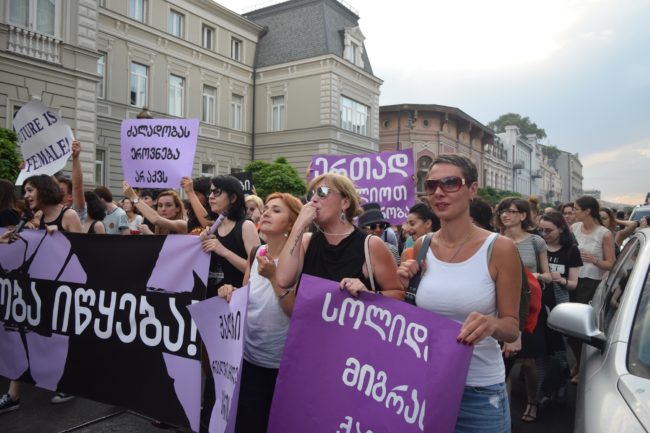

 Women’s rights activists have presented a petition to Georgia’s Parliament calling sexual harassment to be outlawed in public and at workplaces.
Women’s rights activists have presented a petition to Georgia’s Parliament calling sexual harassment to be outlawed in public and at workplaces.
The petition, organised by umbrella group the Georgian Women’s Movement, was signed by more than 1,000 people online and submitted to parliament on 24 October.
‘There are no legislative penalties for sexual harassment in Georgia today, and it’s not defined as discrimination’, the petition says, urging parliament to amend legislation.
The group has advocated amending Georgia’s Labour Code and Code of Administrative Offences, making sexual harassment in public places and workplaces a punishable offence.
[Read on OC Media: Tbilisi activists launch campaign against sexual harassment]
According to the movement, a number of draft laws have been put to parliament in the past to outlaw harassment, but ‘parliament has not considered them’.
The group said sexual harassment in public spaces includes ‘comments of a sexual nature, obscene jokes, staring, whistling, persistently demanding a phone number after a woman has refused, touching, showing genitalia’, and others.
Georgian women’s rights groups recently launched a campaign against sexual harassment by sharing first-handed stories from women who have experienced harassment in buses, taxis, and in other public places under the Facebook page, What Happened in the Street.
[Read on OC Media: Tbilisi in denial — the seductive victims of sexual assault]









